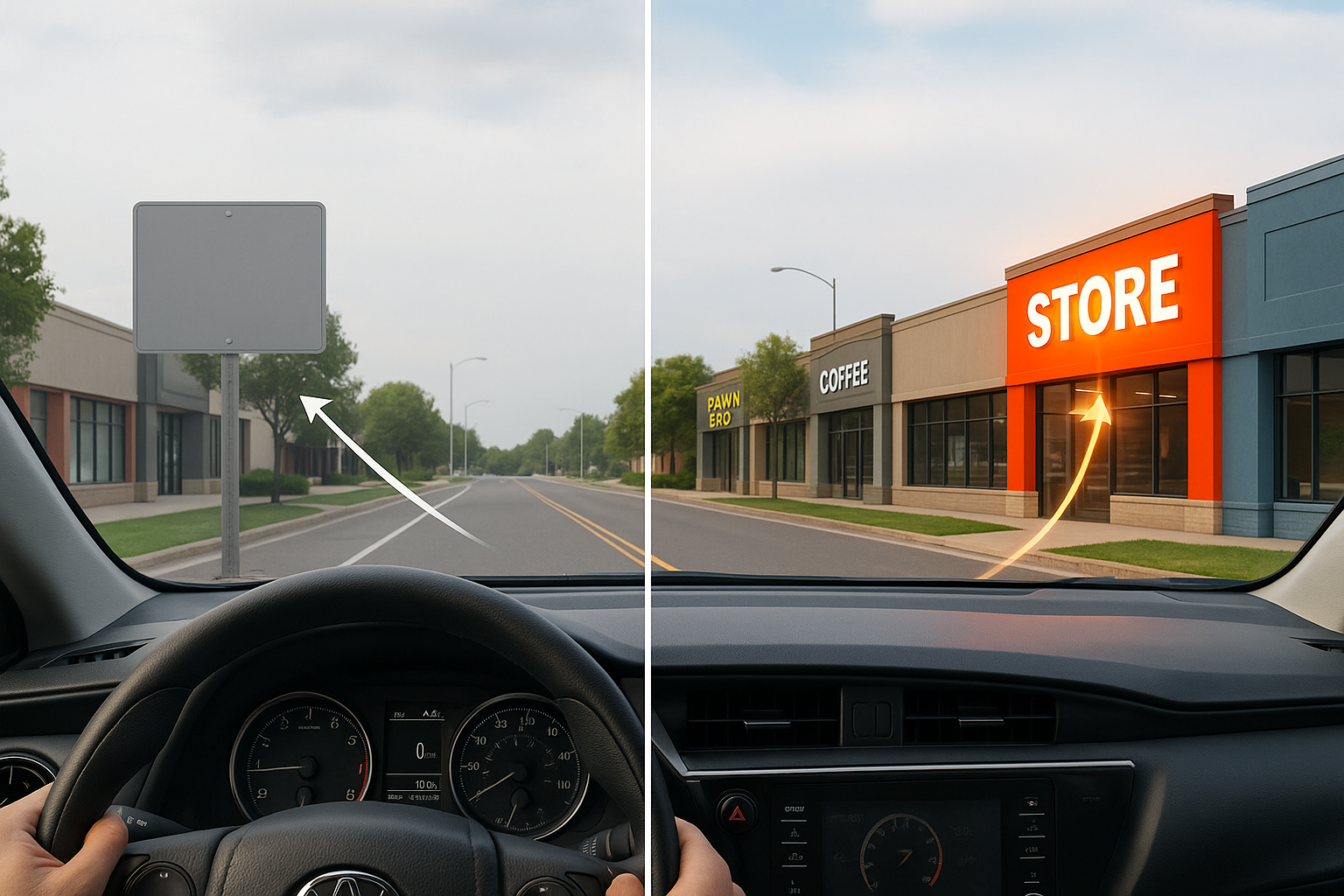In the fast-moving world of visual communication, your sign has just a few seconds to do its job. But here’s the twist: people don’t read signs at first; they notice them. And that’s where preattentive vision comes in.
What is Preattentive Vision?
Preattentive vision refers to the first 3-5 seconds of visual processing when someone encounters a new or changing scene, like entering a busy street or approaching a row of storefronts. During this brief, automatic scan, the brain quickly decides which visual elements are worth focusing on before conscious thought kicks in.
In those critical seconds, the human eye is drawn to:
- Edges and shapes
- Bright or high-contrast colors
- Motion
- Faces
- Center-focused objects
If your signage doesn’t stand out during this phase? It’s likely to be ignored, even if it has the perfect message.
Why It Matters in the Signage Industry
For signage that targets drivers, visibility isn’t optional. A sign must cut through the visual clutter like trees, traffic, poles, buildings, and competing signs. If it fails to register during that preattentive scan:
- Wayfinding is disrupted. Customers may miss your location entirely.
- Impulse sales are lost. The brain never flags your sign for further attention.
- Brand recall suffers. The viewer’s mental “map” of your business never forms.
Designing for Preattentive Vision
To increase the chance your sign gets noticed:
- Use bold, high-contrast colors
- One clear, simple message. 1-2 words is ideal for drive-by readability
- Prioritize legibility with clear, easy-to-read fonts
- Place signage where the viewer’s eye naturally falls
- Avoid visual clutter. Make sure your sign is the visual focal point
Bottom Line
Your sign has just seconds to make an impression. Designing with preattentive vision in mind can mean the difference between being seen or being missed. In a world full of distractions, smart signage design helps your message rise to the top, automatically, instinctively, and instantly.
We can help you create signage that speaks to the eye before it speaks to the brain. Visit our website or give us a call at (813) 447-4770.
Citations:
Treisman, A.M. (1985). Preattentive Processing in Vision.
Wolf, J.M. (1998). Visual Search
Kellaris, J.J. & Machleit, K.A. (2016). Signage as Marketing Communications: A Conceptual Model and Research Propositions. Interdisciplinary Journal of Signage and Wayfinding.


